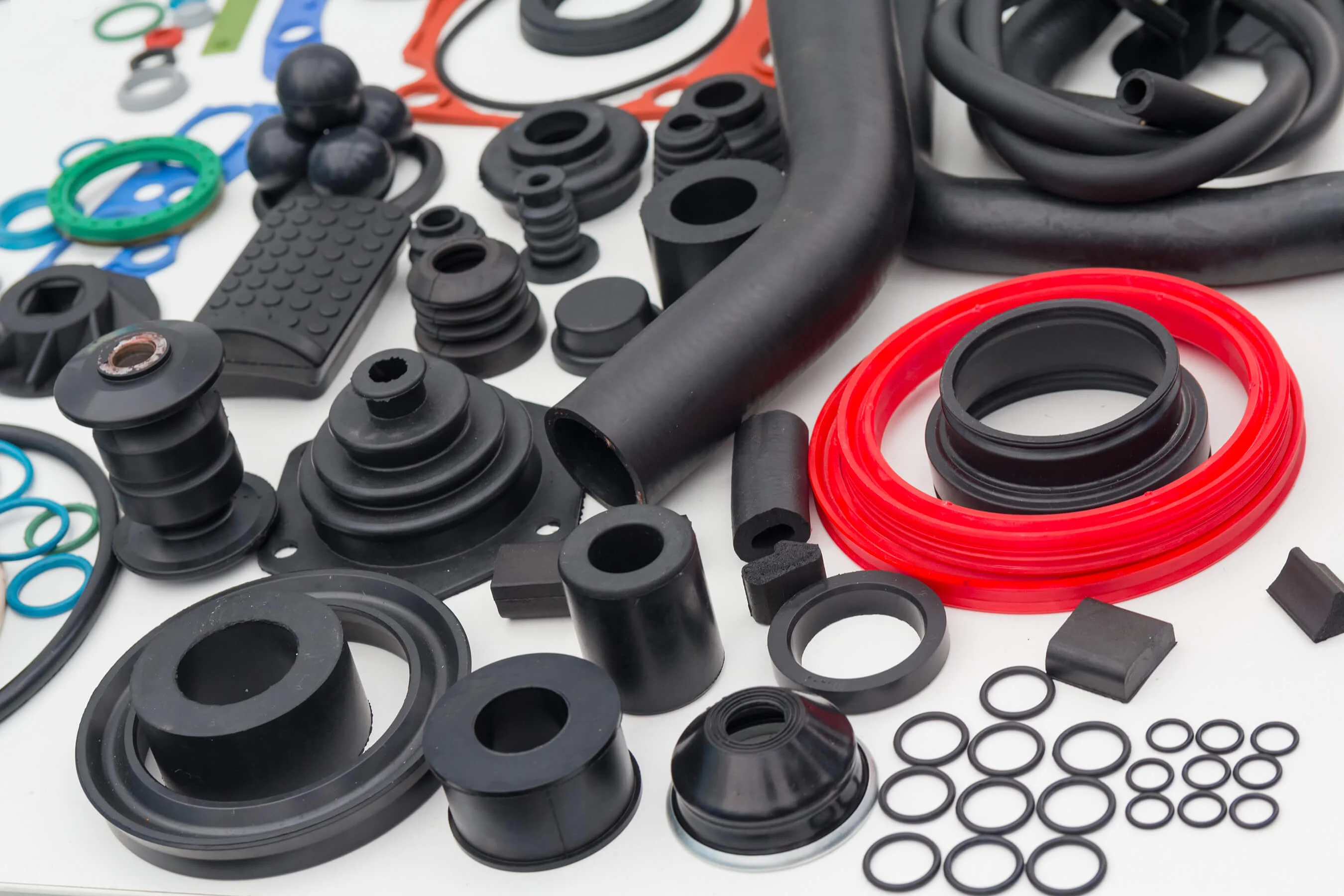Rubber Moulding
Rubber Molding Services and its Relation to Plastic Manufacturing: Enhancing Precision and VersatilityIn the world of plastic manufacturing, rubber molding services play a vital role in expanding the capabilities and versatility of plastic components. Rubber molding offers unique advantages, producing complex shapes, precise details, and durable rubber parts (rubber moulding products). The significance of rubber molding services in plastic manufacturing, highlighting their applications, benefits, and the exceptional offerings of Neoplastics – your trusted partner in rubber molding.
Understanding Rubber Molding Services:
Rubber molding is a process that involves shaping rubber materials into specific forms using molds. It allows for creating intricate designs, varied hardness levels, and various rubber properties. The process encompasses techniques such as injection molding, compression molding, transfer molding, and more. These methods enable the production of high-quality rubber parts that meet stringent industry standards.
The Relationship between Rubber Molding and Plastic Manufacturing:
While rubber and plastic are distinct materials, their applications often overlap in manufacturing. Rubber molding services enhance plastic manufacturing in several ways:
- Versatility: Rubber molding complements plastic manufacturing by providing the ability to incorporate rubber components or over-molding rubber onto plastic parts, expanding design possibilities and functionality.
- Sealing and Insulation: Rubber parts produced through molding processes offer excellent sealing properties, preventing leaks or providing insulation in various applications.
- Shock Absorption: Rubber-molded parts can absorb and dampen vibrations, reducing noise and enhancing safety in mechanical systems.
- Chemical Resistance: Rubber materials can resist chemical exposure, making them suitable for applications where contact with corrosive substances is expected.
Applications of Rubber Molding in Plastic Manufacturing:
- Automotive: Rubber-molded parts find extensive use in automotive applications, including seals, gaskets, vibration dampeners, and suspension components.
- Electronics: Rubber molding ensures the protection and insulation of delicate electronic components, offering solutions such as rubber keypads, grommets, and cable assemblies.
- Medical: Rubber-molded parts are critical in medical devices, providing a sterile and biocompatible solution for seals, stoppers, connectors, and other components.
- Consumer Goods: Rubber molding enhances consumer products, such as household appliances, sporting goods, and toys, with features like ergonomic grips, shock resistance, and water-tight seals.
Benefits of Neoplastics' Rubber Molding Services:
Regarding reliable rubber molding services, Neoplastics stands out as a trusted partner. Here are some key benefits of choosing Neoplastics for your rubber molding needs:
- Expertise and Experience: Neoplastics brings decades of experience and technical expertise in rubber molding, ensuring superior quality and precision in every project.
- Customization and Design Support: With a customer-centric approach, Neoplastics collaborates closely with clients to understand their unique requirements, providing tailored solutions and design support.
- Advanced Manufacturing Capabilities: Neoplastics leverages state-of-the-art manufacturing facilities, modern equipment, and advanced technologies to deliver consistent, high-quality rubber-molded parts.
- Quality Assurance: Neoplastics maintains rigorous quality control processes, adhering to industry standards and certifications, guaranteeing reliable and durable rubber parts.
When it comes to rubber molding services that enhance the capabilities of plastic manufacturing, choose Neoplastics. With their expertise, customization options, advanced capabilities, and commitment to quality, Neoplastics is your trusted partner for exceptional rubber-molded parts. Contact Neoplastics today to explore how their rubber molding services can elevate your plastic manufacturing projects.
Incorporate "Neoplastics" rubber moulding company into the call to action:"Experience precision and versatility with rubber molding services from Neoplastics. Contact us today to enhance your plastic manufacturing capabilities." Talk to our rubber moulding supplier/ rubber moulding manufacturers Today.
FAQ's
Plastic machined parts can be manufactured using various materials, including but not limited to acrylic, polyethylene, polypropylene, PVC, ABS, nylon, and PTFE. The choice of material depends on factors such as the desired properties (e.g., strength, flexibility, chemical resistance), application requirements, and cost-effectiveness.
Plastic machined parts offer several advantages over metal parts. These include:
- Lightweight: Plastic parts are often significantly lighter than their metal counterparts, making them ideal for applications where weight reduction is crucial.
- Corrosion resistance: Many plastic materials exhibit excellent resistance to chemicals, moisture, and environmental factors, making them highly durable in corrosive environments.
- Design flexibility: Plastic can be easily molded and machined into intricate shapes and complex geometries, allowing for greater design flexibility and customization.
- Cost-effective: Plastic materials are more cost-effective than metals, making them a more economical choice for certain applications.
Plastic machined parts find applications in various industries, including:
- Automotive: Plastic parts are used in vehicle interiors, engine components, and exterior trims due to their lightweight nature and design versatility.
- Aerospace: Plastic machined parts are utilized in aircraft interiors, structural components, and specialized equipment due to their weight savings and resistance to corrosion.
- Medical: Plastic parts are widely used in medical devices, equipment, and implants due to their biocompatibility, sterilizability, and ease of customization.
- Electronics: Plastic machined parts are employed in electronic enclosures, connectors, and components due to their electrical insulation properties and design flexibility.
- Consumer Goods: Plastic parts are found in everyday products such as appliances, toys, packaging, and household items due to their affordability and versatility.
